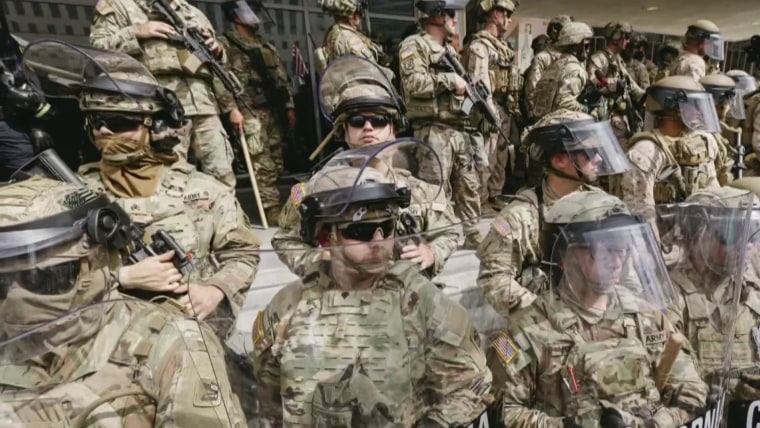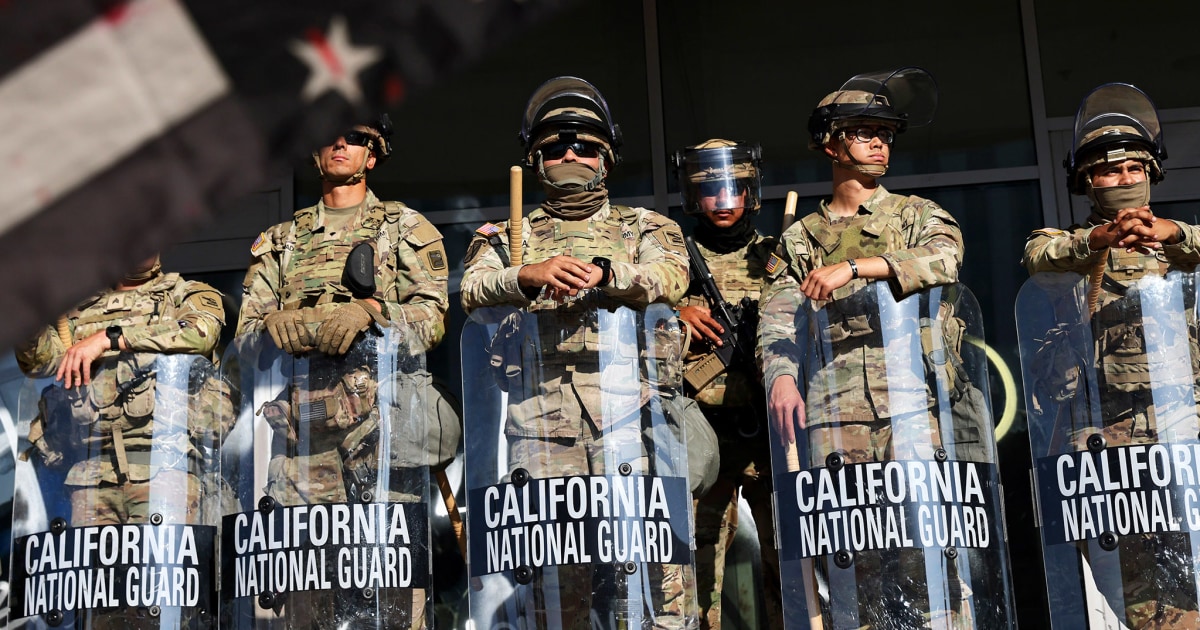A three-judge panel appeared skeptical of the Trump administration’s arguments that the president has judicially un-reviewable power when it comes to the deployment of the National Guard on the streets of Los Angeles.
The 9th U.S. Circuit Court of Appeals heard oral arguments Wednesday after a federal judge in San Francisco ruled that President Donald Trump violated a 19th-century law barring the use of soldiers for civilian law enforcement. California’s case against the administration could influence other states’ fights against the deployment of Guardsmen in their cities, including in Oregon and Illinois.
Through the tone of questioning, it appeared that the panel was doubtful of the Department of Justice’s defense.
The administration first deployed federal troops to Los Angeles after thousands of protesters took to the streets of downtown to rally against his immigration policies.
The White House framed the protests as violent riots that were overwhelming local authorities and endangering residents. The National Guard was necessary, it argued, to protect federal property and personnel from the escalating chaos.
Critics have branded the deployments federal government overreach.
In a tense back-and-forth in court Wednesday, Circuit Court Judge Eric Miller questioned DOJ attorney Eric McArthur about the extent of the protests in Los Angeles and surrounding areas, and whether they warranted a National Guard presence for an extended period of time.
Miller, a Trump appointee, asked why a few hundred people engaging in “disorderly conduct” over two days was “comparable severity to an invasion or a rebellion.”
“Because violence is being used to thwart enforcement of federal law,” McArthur answered.
“But violence is used to thwart enforcement of federal law all the time. Right?” Miller asked. “I mean, like the FBI goes to arrest somebody and he shoots at them or tries to run away, and that happens every day, right?”
McArthur contended that it went “well beyond the sort of everyday resistance that you see to federal law enforcement.”

A similar line of questioning focused on how much conditions on the ground have to change for it to become a judicially reviewable issue. McArthur said there was “nothing in the statute” that allows the court to make that kind of determination.
The statute McArthur is referring to is 10 U.S. Code 12406, which states when there is a “rebellion” or “invasion” and “regular forces” are unable to execute the laws of the United States, the president has the power to send in federalized members of the National Guard.
McArthur said the court would have to create its own standard about when the National Guard has to be released from service.
Attorney Samuel Harbourt, representing the state of California, said the circumstances seen during protests in June have not reoccurred.
The Trump administration, Harbourt said, has “repeatedly acknowledged the conditions on the ground have changed substantially, including the risk to federal personnel in Los Angeles.”
Harbourt also said the administration’s intent to send every federalized California National Guard member to Portland, Oregon, shows there’s no invasion or rebellion happening in Los Angeles.
A court ruling initially stopped the Trump administration from being able to send troops to Portland, but the 9th U.S. Circuit Court of Appeals overturned the decision Monday. A 2-1 ruling by the appeals panel determined “that it is likely that the President lawfully exercised his statutory authority.”
While judges in Portland determined it was “likely” Trump has the power to deploy members of the National Guard, the judges in California were hearing arguments on the question at issue itself — does the president have the power to deploy members of the National Guard under these circumstances?
Oregon officials have fought against the deployment, arguing that there is no truth to Trump’s claims that an insurrection was taking place on Portland’s streets.
The sole dissenting judge, Susan P. Graber, wrote in her decision that it was inappropriate to accept the government’s characterization of Portland as war zone.
Her colleagues’ ruling, “is not merely absurd. It erodes core constitutional principles including sovereign States’ control over their States’ militias and the people’s First Amendment rights to assemble and to object to the government’s policies and actions.”
Oregon Attorney General Dan Rayfield said he would seek a decision by the full 9th Circuit in hopes it would overturn the three-judge panel.
The Department of Justice is facing a similar case in Illinois, where the state is asking the Supreme Court to weigh in after the Chicago-based 7th U.S. Circuit Court of Appeals ruled against deploying Guardsmen in the state.
Solicitor General D. John Sauer, who represented the administration, insisted it was necessary for the safety of federal agents who have been repeatedly “threatened and assaulted.” He insisted that federal authorities “have been forced to operate under the constant threat of mob violence.”
Illinois Governor JB Pritzker said in an X post last week that he would continue to defend the state against Trump’s attempts to “invade Illinois with troops.”
“Militarizing our communities against their will is not only un-American but also leads us down a dangerous path for our democracy,” Pritzker wrote.

